Deportes electrónicos
La guía definitiva para iniciar una carrera en los eSports
¡Tu carrera en los esports empieza aquí! Obtén consejos paso a paso sobre juegos móviles, rutinas de práctica reales, planes de networking y consejos para torneos para forjar una carrera sólida en el gaming competitivo.
Anuncios
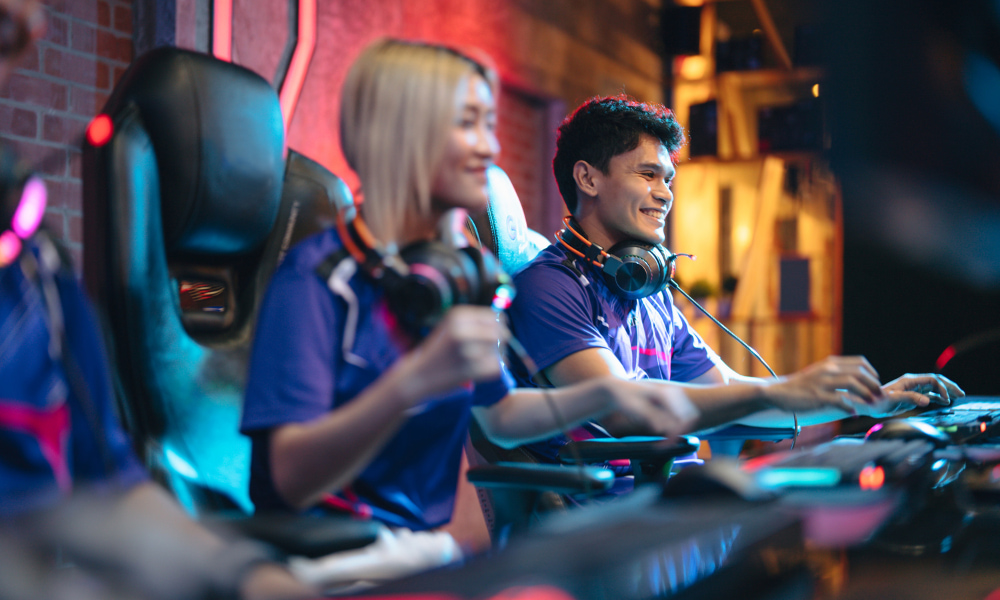
Convertir tu pasión por los videojuegos y los juegos móviles en algo más grande se siente como perseguir un logro largamente ansiado. Sueñas con un camino donde tu carrera en los esports signifique más que partidas nocturnas con amigos.
En Estados Unidos y más allá, miles de jugadores anhelan lo mismo. Una carrera en los esports no es solo una fantasía, es una realidad en crecimiento. Sin embargo, comenzar requiere claridad, enfoque y pasos concretos.
Quédate para obtener una guía detallada repleta de estrategias probadas, ejemplos reales y listas de verificación, para que puedas navegar con confianza en tu propio viaje profesional en los deportes electrónicos desde el primer día.
Establecer prioridades y objetivos claros desde el primer día
Para construir una carrera exitosa en los esports, empieza por prioridades: elige tu juego principal, establece horas de práctica y crea indicadores de logros medibles. Esto te ayudará a despejar el camino antes de que llegue la frustración.
La mayoría de los profesionales de los juegos móviles comenzaron con hitos como alcanzar el rango de clasificación o alcanzar el percentil superior. La claridad impulsó su mejora y aumentó su concentración en un entorno competitivo y dinámico.
Centrándose en un juego central
Elegir un título competitivo te ayuda a especializarte y destacar. Imagina a alguien que elige Arena of Valor en lugar de otros géneros: cada partida, habilidad y táctica se perfecciona con precisión.
Al sumergirte en un juego a fondo, la memoria muscular y el conocimiento de los mapas superan rápidamente el talento distribuido en varios juegos. Al decir «Cada hora cuenta», los jugadores ven resultados tangibles más rápido.
Para empezar, identifica un juego que te guste y que tenga un ambiente de torneos dinámico. Únete a su comunidad, encuentra listas de niveles fiables y comprométete a practicar regularmente solo en ese juego.
Seguimiento del progreso diario con pequeñas victorias
Los jugadores que progresan en sus carreras de esports no solo ganan, sino que también aprenden momentos en hojas de cálculo o aplicaciones de diario. "Hoy aprendí a leer las rotaciones de la jungla" es una victoria diaria típica.
Desglosar los objetivos de práctica, como perfeccionar combos o reducir las muertes, elimina la sobrecarga y genera impulso. Un jugador podría registrar sus mejoras en precisión o conocimiento del mapa después de cada sesión.
Restablezca sus objetivos semanalmente y analice su crecimiento con amigos o mentores: la retroalimentación inmediata lo mantiene encaminado y celebrar los miniobjetivos resulta gratificante.
| Paso | Ejemplo | Resultado | Siguiente acción |
|---|---|---|---|
| Seleccione un juego | MOBA o Battle Royale | Enfoque especializado | Comprometerse 6 meses |
| Establecer una meta diaria | “Mejorar la tasa de último golpe” | Seguimiento claro de habilidades | Revisa las repeticiones cada noche |
| Métricas de seguimiento | Estadísticas de KDA, victorias/derrotas | Cuantificar el crecimiento | Hoja de actualización semanal |
| Establecer un gran hito | Llegar al top 500 | Motivación hacia arriba | Compartir con el equipo |
| Bucle de retroalimentación | Revisión por pares | Corrija errores rápidamente | Aplicar en el próximo partido |
Construyendo una rutina diaria que refuerce el éxito a largo plazo
Tu rutina diaria sienta las bases para un crecimiento profesional sostenido en los esports. La constancia impulsa las habilidades, tanto en el juego técnico como en la resiliencia mental, de los profesionales de los videojuegos móviles.
Ya sea jugando partidas clasificatorias o revisando partidas, un horario estructurado distingue a los jugadores exitosos. Copia sus métodos de bloqueo de tiempo para mayor claridad y equilibra la concentración para evitar el agotamiento.
Adopción de hábitos de práctica de nivel profesional
Reserva dos horas para calentar, realiza ejercicios de concentración como el entrenamiento de puntería y termina con cinco partidas clasificatorias. Los jugadores profesionales adoran las rutinas que combinan mecánicas, estudio de estrategia y tiempos de recuperación conscientes.
Sesiones breves de revisión de video (de treinta minutos, no de dos horas) revelan errores que se pasan por alto. Considera planificar un día: “19:00-21:00: Ejercicios de juegos móviles. 21:00: Revisión de estadísticas. 21:30: Descanso”. Los resultados se obtienen con la perseverancia.
- Comience cada sesión con 15 minutos de conceptos básicos: desarrolle la memoria muscular más rápido y evite que errores fáciles de corregir se repitan en partidos reales.
- Revisa 3 juegos recientes con un compañero: obtén comentarios honestos que puedas aplicar de inmediato, en lugar de adivinar qué es lo que te detiene.
- Crea una lista de reproducción personalizada para practicar: la música con un ritmo constante puede agudizar la concentración durante largos bloques de práctica en solitario.
- Utilice la técnica Pomodoro: alterne sprints intensos de 25 minutos con descansos de 5 minutos, lo que reduce la fatiga mental y mejora el rendimiento a largo plazo.
- Termine las sesiones con notas escritas: registrar los descubrimientos consolida las lecciones y le brinda una señal para el siguiente paso antes de su próxima práctica.
Apilar hábitos (vincular calentamientos, práctica y repasos en orden) minimiza los pasos que se saltan. Cada nueva incorporación se consolida al vincularse a un hábito existente.
Equilibrar el juego con la recuperación
Priorizar el descanso, la nutrición y el ejercicio ayuda a mantener la concentración durante largos bloques de entrenamiento. Los profesionales integran recordatorios de hidratación en sus descansos y se levantan para estirar entre partidos.
Demasiado tiempo frente a la pantalla frena el progreso. Los jugadores que dan paseos de 15 minutos al aire libre después de las sesiones regresan con mayor agudeza. Especialmente para los jugadores móviles, la actividad física restablece la postura y la atención.
- Configure recordatorios en su teléfono para los momentos de descanso: no hay un rendimiento decisivo sin un descanso adecuado, especialmente durante la preparación del torneo.
- Planifique las comidas con anticipación: la falta de energía debido a comidas salteadas conduce a una toma de decisiones cansada en el juego.
- Cambie a aplicaciones que bloqueen la luz azul durante la noche: proteja el sueño y la recuperación con ajustes de pantalla que minimizan la interrupción del sueño.
- Estira tus manos entre juegos: combate la fatiga y evita lesiones por uso excesivo, manteniendo constante tu velocidad de reacción.
- Comparta caminatas cortas con sus compañeros de equipo: el movimiento grupal mantiene alta la moral del equipo y también genera una comunicación más sólida fuera del campo.
La recuperación no se limita a un simple descanso. Es tan crucial como cualquier ejercicio de juego: si se realiza correctamente, crea las condiciones para un rendimiento constante en los esports y sesiones de juego móvil más largas.
Ampliando su red de colaboración y oportunidades
Establecer conexiones reales y de apoyo multiplica las oportunidades profesionales en los esports. Acércate a las comunidades en línea con preparación: preséntate, comparte vídeos de partidas y ofrece comentarios constructivos a los demás.
Unirse a grupos en línea específicos
Busca servidores de Discord específicos para el título que has elegido. Haz preguntas como "¿Qué configuraciones usas al final del juego?". Ofrece respuestas útiles. Esta reciprocidad fomenta alianzas duraderas.
Únete a las redes sociales y a los foros oficiales del juego para mantenerte al día sobre los últimos cambios en el metajuego. Publicar constantemente información como "El metajuego cambió tras el parche" te mantiene visible y valioso.
Asiste a los entrenamientos en línea organizados por los líderes de la comunidad. Comenta las jugadas de tus compañeros con guiones como: "¡Buena rotación! En la próxima ronda, cubran el centro del campo antes". Estas interacciones suelen derivar en invitaciones a pruebas privadas.
Encontrar aliados locales y regionales
Grupos de scouts en tu ciudad: muchas bibliotecas, universidades o cafeterías de videojuegos organizan noches de juegos móviles o torneos de ligas locales. Preséntate con un rol específico que desempeñes, como "Soy el apoyo principal y busco equipo".
Las reuniones presenciales convierten los contactos digitales en redes de apoyo más amigables y omnipresentes. Intercambiar etiquetas de Discord después de un evento local consolida conexiones que podrían dispersarse en chats públicos abarrotados.
Después del primer apretón de manos, establezca fechas para la capacitación cooperativa o sesiones de revisión: la experiencia compartida genera confianza, lo que probablemente lleve a invitaciones a eventos y entrenamiento informal dentro de su carrera en los deportes electrónicos.
Refinando la jugabilidad con análisis de datos y mejoras tecnológicas
Analizar los datos posteriores al partido revela patrones que el instinto puro pasa por alto en la evolución de tu carrera en los esports. Revisa los mapas de daño, los motivos de las derrotas o grafica la participación en las bajas: cada estadística es una pista para mejorar.
Implementación de rastreadores de datos personalizados
Para los juegos móviles, las aplicaciones gratuitas de seguimiento de estadísticas o los registros del juego ofrecen información práctica. Analiza las pérdidas: "¿Mi juego inicial fue más lento? ¿Perdí la visión?". Cada pregunta tiene una respuesta medible, no una sensación vaga.
Crea hojas sencillas o páginas de Notion para errores recurrentes. Etiqueta las repeticiones como "objetivo incumplido", "ruta de objeto incorrecta" o "tarde para el combate". Con el tiempo, las tendencias guían tus prioridades de entrenamiento.
Comparte los hallazgos con tus compañeros para comparar patrones. Esto permite que todos se concentren en mejorar los puntos débiles del grupo como parte de un equipo de esports con visión de crecimiento.
Actualización de equipos para obtener ventajas competitivas
Los jugadores móviles confían en dispositivos con bajo retardo, pantallas táctiles calibradas y auriculares con cable. Incluso mejoras modestas, como un agarre para el mando o un protector de pantalla, reducen en milisegundos el tiempo de reacción en combates reñidos.
Prueba los cambios de configuración con un amigo observándote. Presta atención a comentarios como: "Tu puntería parece más precisa" o "Ya no se arrastra accidentalmente". Estas mejoras se acumulan en las distintas sesiones.
Mantén una lista de verificación: cables de carga de repuesto, wifi confiable, bancos de baterías para eventos; todo esto genera estabilidad. Una base tecnológica adecuada previene contratiempos evitables mucho antes de los momentos más importantes de tu carrera en los esports.
Compitiendo consistentemente en categorías en línea y regionales
Los nervios del día del partido se disipan con la exposición regular a torneos reales. Apúntate a torneos semanales en línea, clasificaciones locales de juegos móviles o ligas virtuales al inicio de tu carrera en los esports.
Guarda la hora de inicio de cada evento en tu calendario. Planifica tu calentamiento y enfriamiento antes y después del evento. Llegar preparado alivia los nervios, aunque los nervios del primer partido nunca desaparezcan del todo.
Afinando las rutinas del torneo
Disfruta de una comida tradicional, revisa las notas de última hora y únete a la sala cinco minutos antes de los partidos. Los saludos preestablecidos —"GLHF, ¡vamos!"— crean ambiente y fomentan la deportividad.
Replantea las derrotas como retroalimentación: "¿Ese error de la segunda ronda? Se puede arreglar en el próximo evento". Los compañeros reflejan una mentalidad de crecimiento en las charlas posteriores al partido, convirtiendo la retroalimentación honesta en la norma en lugar de una amenaza para el ego.
Documenta cada categoría en la que participas: enumera lecciones, compañeros de equipo, resultados y momentos destacados para crear tu registro personal de carrera en deportes electrónicos.
Aprovechar eventos que pasan desapercibidos
Busca torneos más pequeños y eventos de juegos móviles no convencionales. Los organizadores a veces buscan talentos emergentes de categorías inferiores, donde la presión es menor, pero la jugabilidad se mantiene en su punto álgido.
Anuncia tu intención: "Jugar para la final" te motiva y demuestra seriedad tanto a tus compañeros como a tus rivales. La experiencia adquirida aquí te prepara para una exposición masiva sin la sobrecarga inicial.
Mantente al tanto de los brackets apilados viendo transmisiones, anotando los momentos clave y las reacciones del público. Adapta estrategias ganadoras a tu rutina de entrenamiento para prepararte para el próximo salto en tu carrera en los esports.
Presentarse profesionalmente como un jugador aspirante
La visibilidad es tan importante como el talento innato. Los jugadores que se toman en serio una carrera en los esports crean biografías concisas, editan videos destacados y crean perfiles en redes sociales que se alinean con su identidad de juego.
Creando un perfil destacado
Elige un nombre de usuario coherente, una imagen nítida y un resumen de 2 a 3 oraciones. "Top 100 de MOBA para móviles, mentor y aspirante a capitán de equipo": esto les indica a los organizadores qué es lo que mejor haces.
Muestra tus momentos culminantes y de aprendizaje en un video conciso: jugadas clave, buena comunicación, perseverancia tras las derrotas. La autenticidad supera a la exageración forzada.
Coloca enlaces en todas tus cuentas (Discord, Twitter y foros) para que la comunicación sea fluida. Un perfil claro invita a enviar mensajes directos para participar en torneos y eventos.
Comunicación con los organizadores y equipos de eventos
Presenta tu presentación con un formato: "Hola, soy [Nombre]. Soy [Rol]. Aquí están mis estadísticas más recientes. Me encantaría probar o ser suplente".
Haz un seguimiento semanal. Respeta su disponibilidad y ofrécete a compartir los momentos destacados del partido si es necesario. Los organizadores valoran a los candidatos que entienden que su tiempo es importante.
Después de una prueba o reunión, agradece a tus contactos por la oportunidad. "Espero volver a encontrarnos" deja las puertas abiertas para más adelante: las redes de carreras de esports se basan en el boca a boca positivo.
Uniendo todo para una trayectoria profesional realista en los deportes electrónicos
Establecer objetivos claros, seguir hábitos diarios y perfeccionar tu perfil impulsan tu carrera en los esports. La constancia y la adaptabilidad impulsan el progreso a largo plazo, incluso cuando los resultados inmediatos son difíciles de alcanzar.
Una carrera en esports combina preparación, desarrollo de habilidades, networking y presentaciones en público. La accesibilidad de los juegos móviles permite que casi cualquier persona dedicada pueda empezar con fuerza, sin importar la ubicación ni el hardware.
Empieza hoy mismo eligiendo tu juego principal, participando en un torneo o perfeccionando tu rutina de práctica. Cada movimiento sienta las bases para el éxito en una gratificante aventura profesional en los esports, totalmente a tu medida.

Cómo elegir el juego de eSports adecuado para competir
Elegir el juego de eSports adecuado alinea tus habilidades, hardware y estilo de juego para lograr el éxito, el crecimiento y el disfrute a largo plazo.
Tendencias
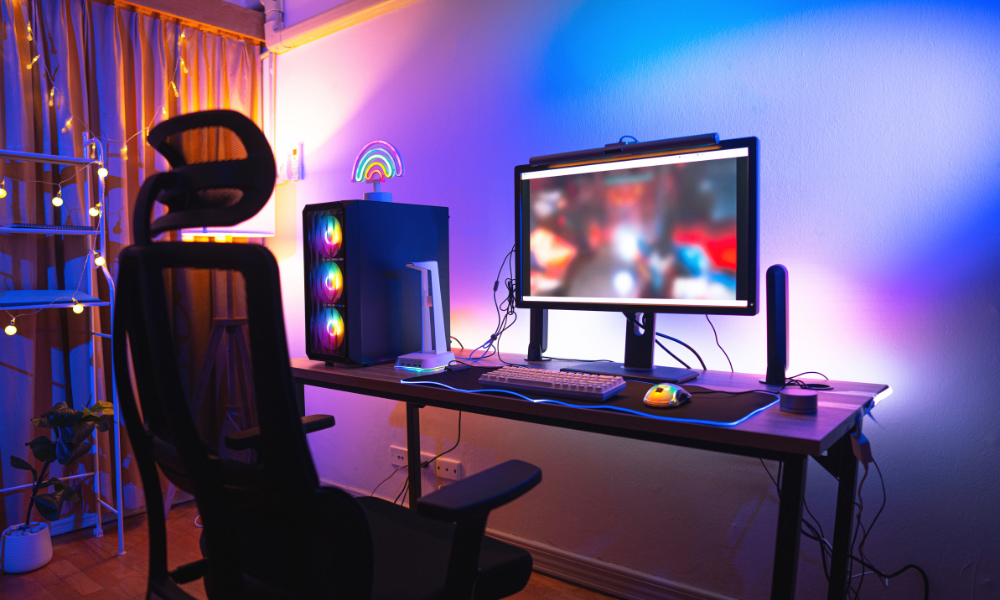
Cómo crear la mejor estrategia en juegos de estrategia en tiempo real
Domina los juegos de estrategia en tiempo real estableciendo objetivos claros, optimizando la gestión de recursos y adaptándote rápidamente a los desafíos cambiantes.
Continúe Leyendo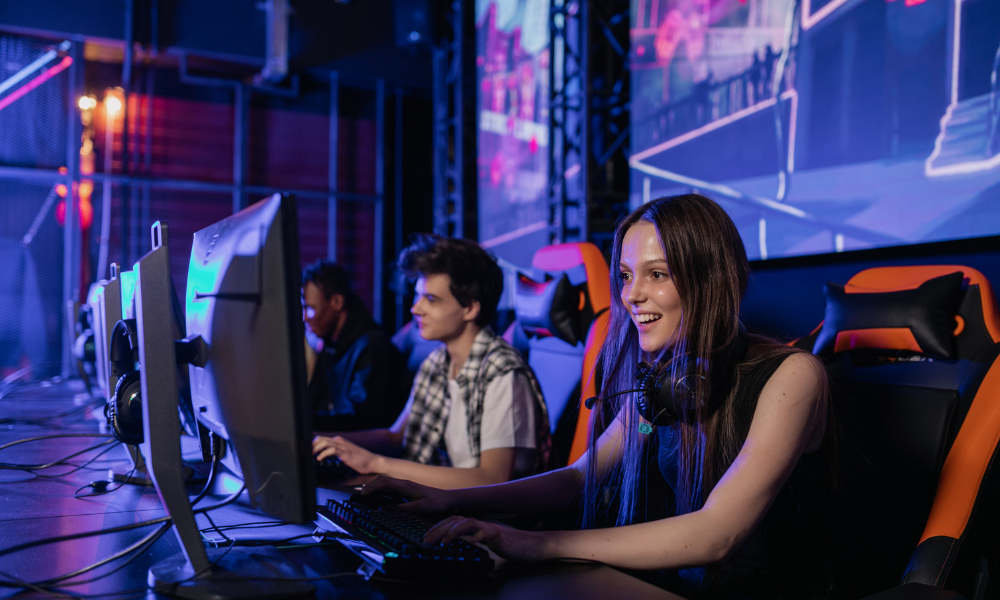
Mujeres en los eSports: desafíos y logros destacados
Las mujeres en los eSports están teniendo un impacto innegable, desafiando los estereotipos y dando forma al futuro de los juegos móviles con habilidad, estrategia y liderazgo.
Continúe Leyendo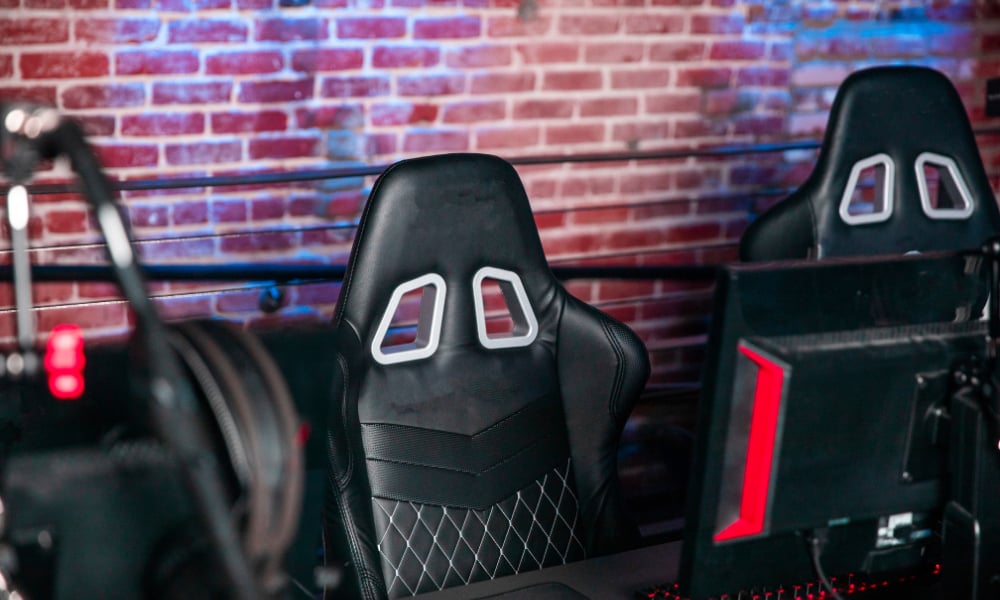
El mejor equipamiento para jugadores y competidores de eSports: equipo que ofrece resultados
El equipamiento profesional de eSports mejora la reacción, la comodidad y la concentración: un equipamiento perfeccionado transforma cada partida en una ventaja ganadora constante.
Continúe LeyendoTambién te puede interesar
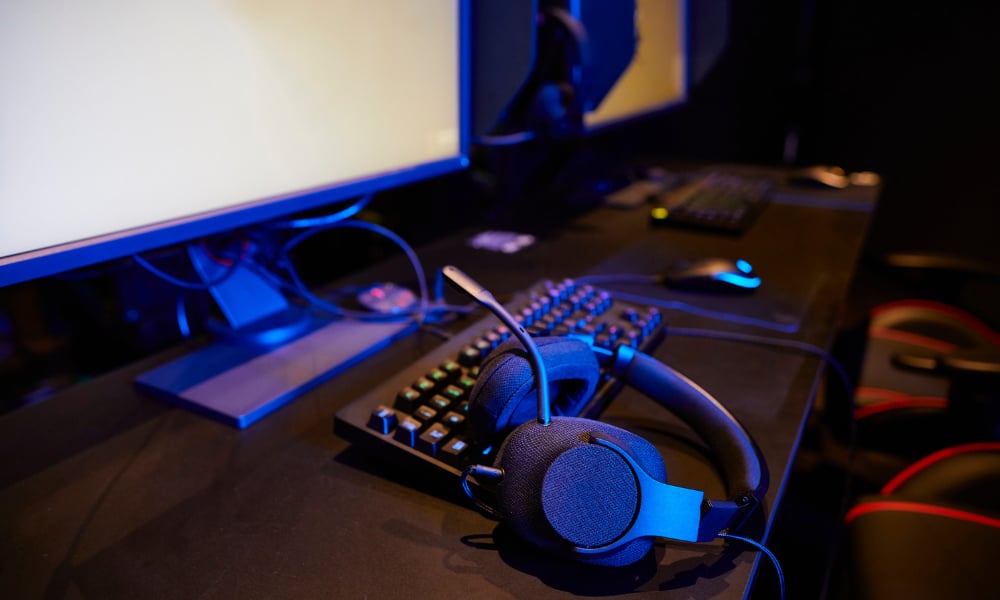
La evolución de los eSports: de afición a profesión global
Desde las raíces de las redes LAN hasta los estadios móviles, la evolución de los eSports combina pasión, habilidad y tecnología, convirtiendo los juegos en una oportunidad global.
Continúe Leyendo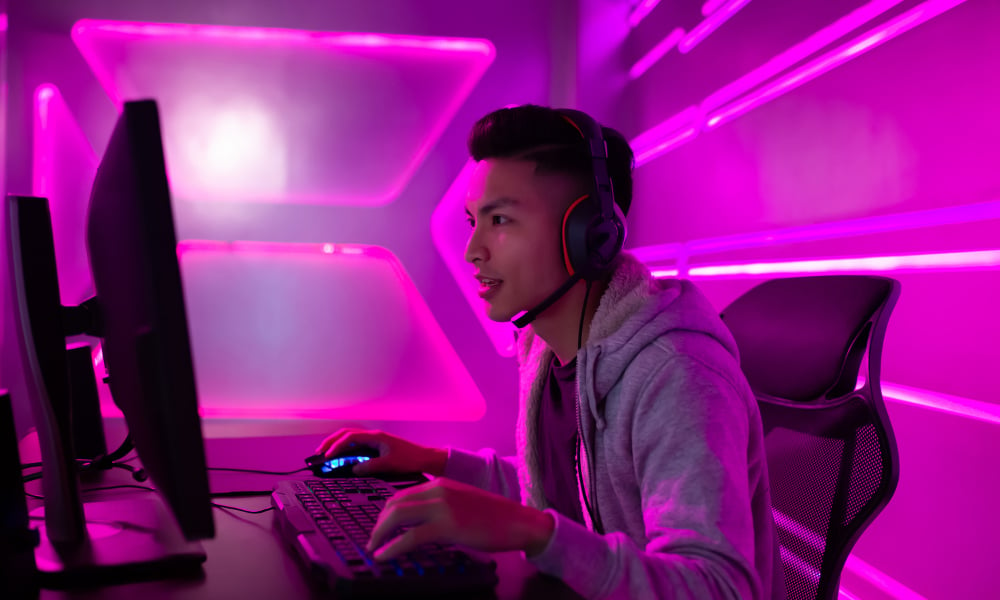
Consejos para elegir el mejor juego de mundo abierto para ti
Encuentra el juego de mundo abierto perfecto para tu estilo de juego con consejos sobre exploración, sistemas de progresión, accesibilidad y funciones inmersivas para juegos móviles.
Continúe Leyendo
Reseña de Genshin Impact: el juego móvil más ambicioso jamás creado
Genshin Impact combina gráficos con calidad de consola, combate profundo y actualizaciones continuas, ofreciendo una experiencia de juego de rol inmersiva en dispositivos móviles.
Continúe Leyendo